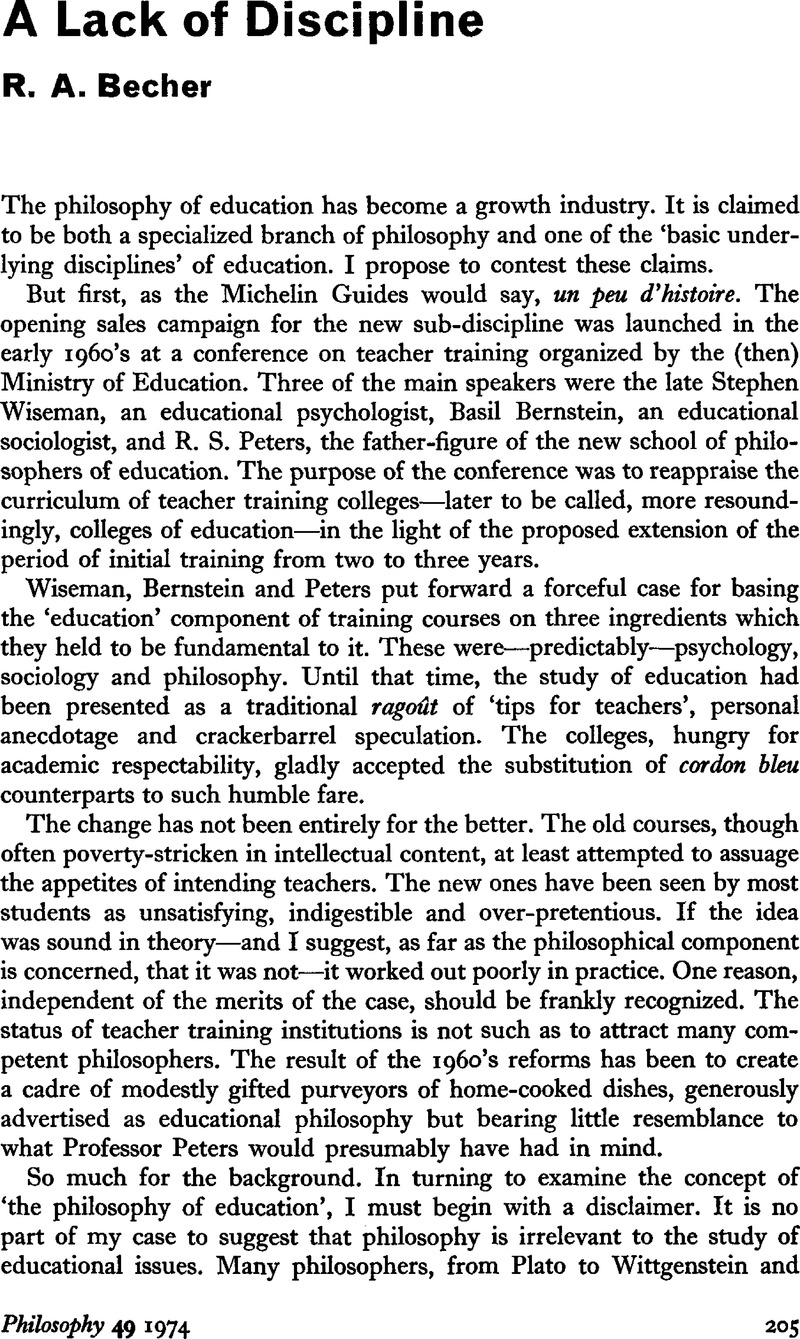No CrossRef data available.

1 A fuller account of the distinction between a ‘discipline’ and a ‘field of study’ is given in Michael Oakeshott's 1961 Inaugural Lecture, where he bases his analysis on the difference between a ‘language’, or manner of thinking, and a ‘literature’, which records what has been said from time to time in a ‘language’. Disciplines are shown in these terms to be explanatory languages which entail particular modes of thought, have clear criteria of relevance, and embody certain characteristic conclusions. See ‘The Study of Politics in a University’, in Rationalism in Politics and Other Essays (Methuen, 1962).Google Scholar
2 Education and the Development of Reason edited by Dearden, R. F., Hirst, P. H. and Peters, R. S. (International Library of the Philosophy of Education: Routledge and Kegan Paul, 1972. Pp. xiv + 536. £5.50).Google Scholar